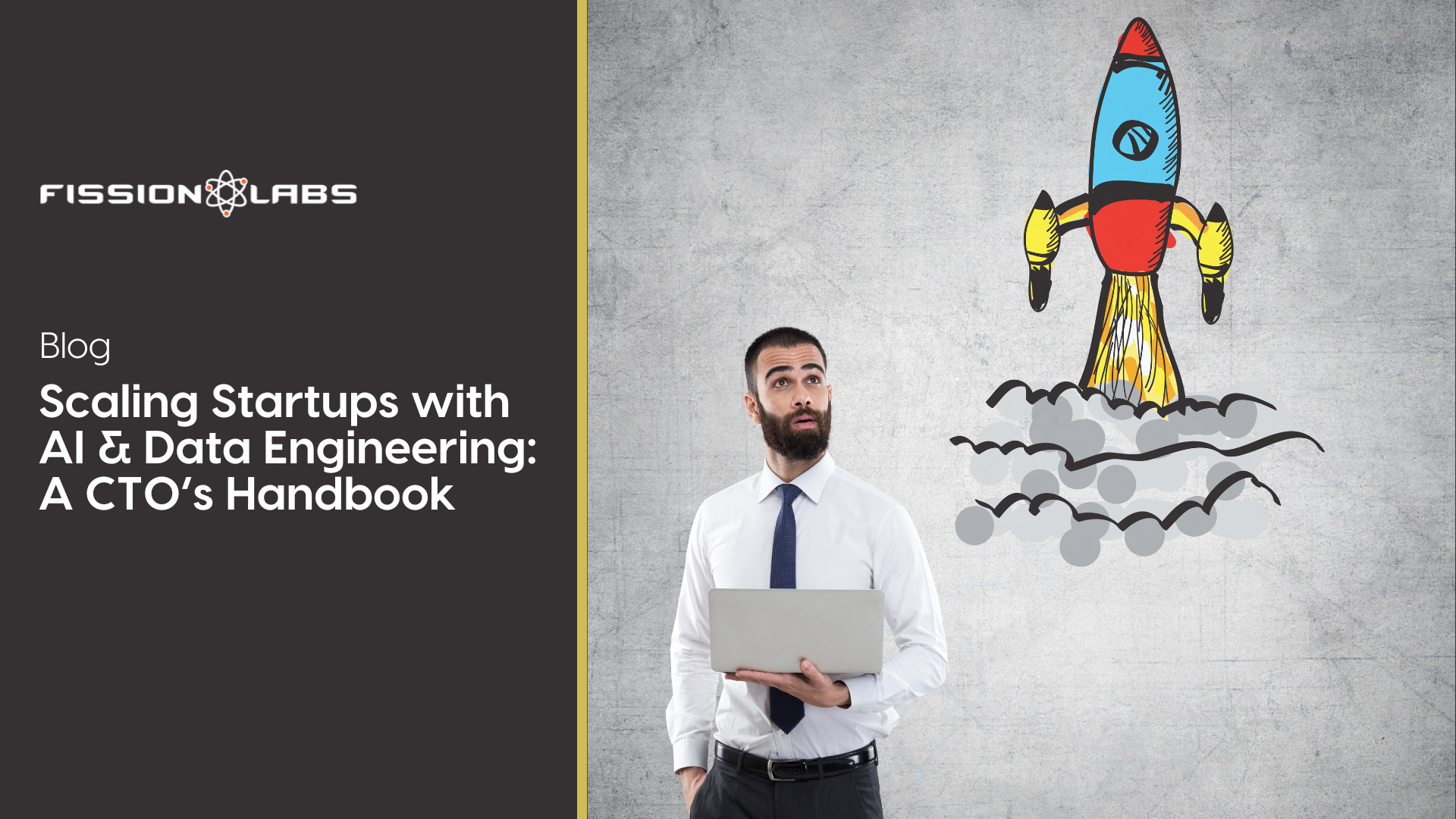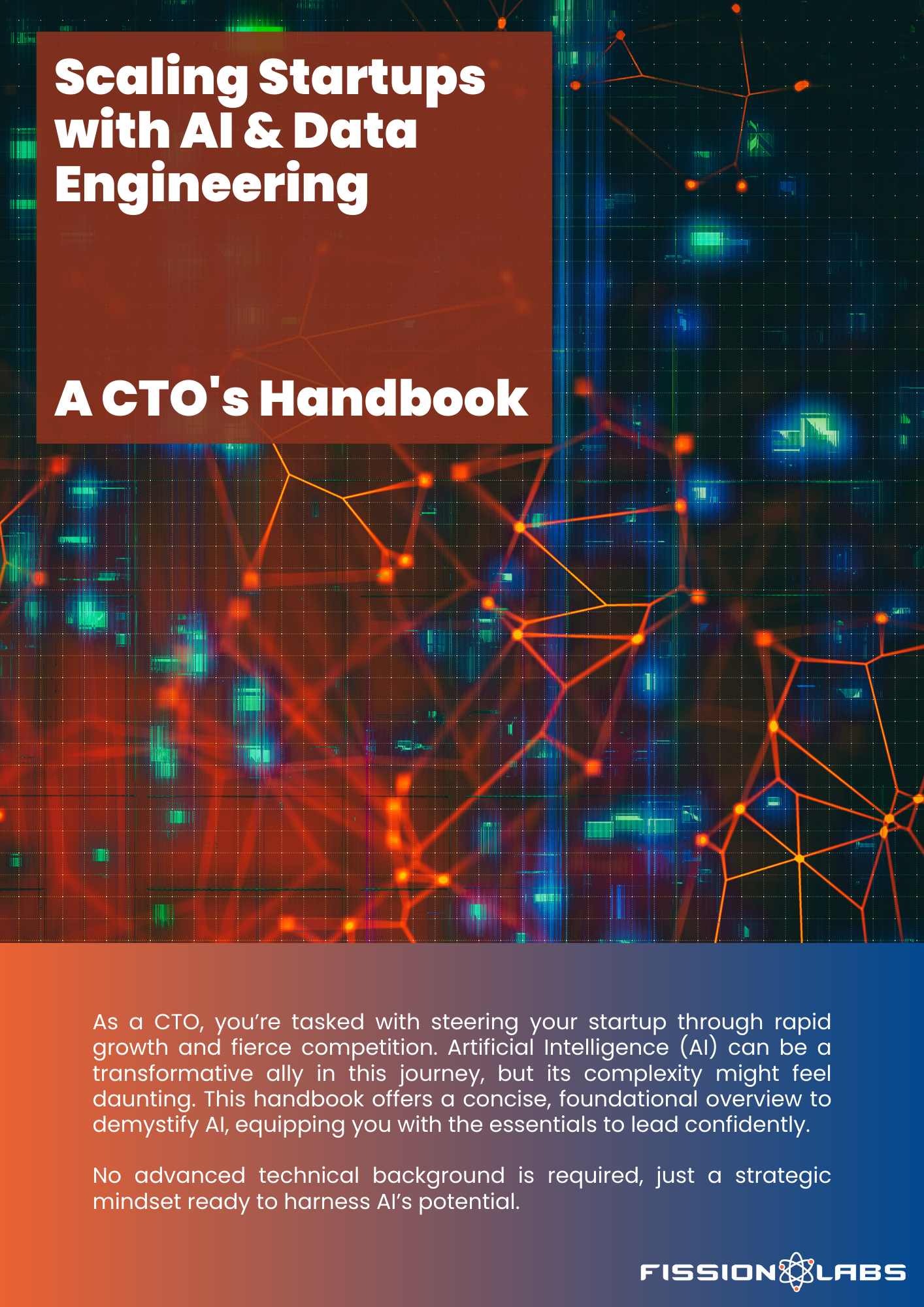
Introduction
Artificial Intelligence (AI) and data engineering are no longer optional for startups looking to scale efficiently and compete effectively. However, implementing these technologies often feels overwhelming, especially for CTOs managing rapid growth, limited resources, and evolving business needs.
To simplify this journey, Fission Labs has created a focused resource: Scaling Startups with AI & Data Engineering: A CTO’s Handbook.
This handbook provides a foundational overview of AI and data engineering in the startup context—without requiring deep technical expertise. It’s designed to help CTOs make confident, informed decisions as they plan, launch, and scale intelligent systems.
What the Handbook Covers
The guide is organized into nine practical chapters that walk you through the essential components of successful AI and data engineering adoption:
- Chapter 1: Strategic Importance of AI and Data Engineering
- Chapter 2: Core Technologies and Infrastructure
- Chapter 3: Planning and Scaling AI Initiatives
- Chapter 4: Assembling Your AI and Data Team
- Chapter 5: Selecting AI Tools and Platforms
- Chapter 6: Governance, Security, and Compliance
- Chapter 7: Financial Planning for AI Projects
- Chapter 8: Roadmap for AI Implementation
- Chapter 9: Decision-Making Frameworks
Each chapter is focused on helping CTOs align technology choices with startup goals while addressing operational challenges like scalability, compliance, and return on investment.
A Glimpse Into Chapter 1: Strategic Importance of AI and Data Engineering
Startups operate in high-velocity environments, where even small efficiencies can offer a competitive edge. AI and data engineering enable faster decision-making, deeper customer insights, and scalable operations.
Chapter 1 begins by emphasizing how these technologies can redefine a startup’s trajectory. For example, real-world solutions like Airbnb’s AI-driven dynamic pricing show how automation and adaptability can outpace competitors relying on static models.
One of the greatest advantages startups hold is their agility. Without legacy infrastructure, they can experiment and iterate quickly, positioning themselves to integrate AI faster and more flexibly than larger enterprises.
Common Challenges to Be Aware Of
Despite the advantages, early-stage implementation of AI comes with its own risks. The handbook highlights six critical pitfalls:
- Inadequate data foundation – Poor data quality can undermine AI outcomes.
- Neglecting model maintenance – Static models degrade over time if not updated.
- Overcommitting resources – Spreading teams too thin across multiple AI initiatives can backfire.
- Lack of stakeholder alignment– Internal buy-in is crucial for long-term success.
- Over reliance on prebuilt models – Generic tools often require customization.
- Ethical oversights – Bias in AI outputs can damage credibility and trust.
Recognizing these risks early can help you proactively mitigate them and ensure a smoother path to adoption.
Download the Full Handbook
This blog is just a preview of the in-depth insights covered in the guide.
📘 Download your free copy of Scaling Startups with AI & Data Engineering: A CTO’s Handbook to access:
- A step-by-step framework for implementation
- Tool and platform selection guidance
- Budgeting and ROI models
- Governance and compliance considerations
- Strategic decision-making frameworks
👉 Get The Handbook Now



